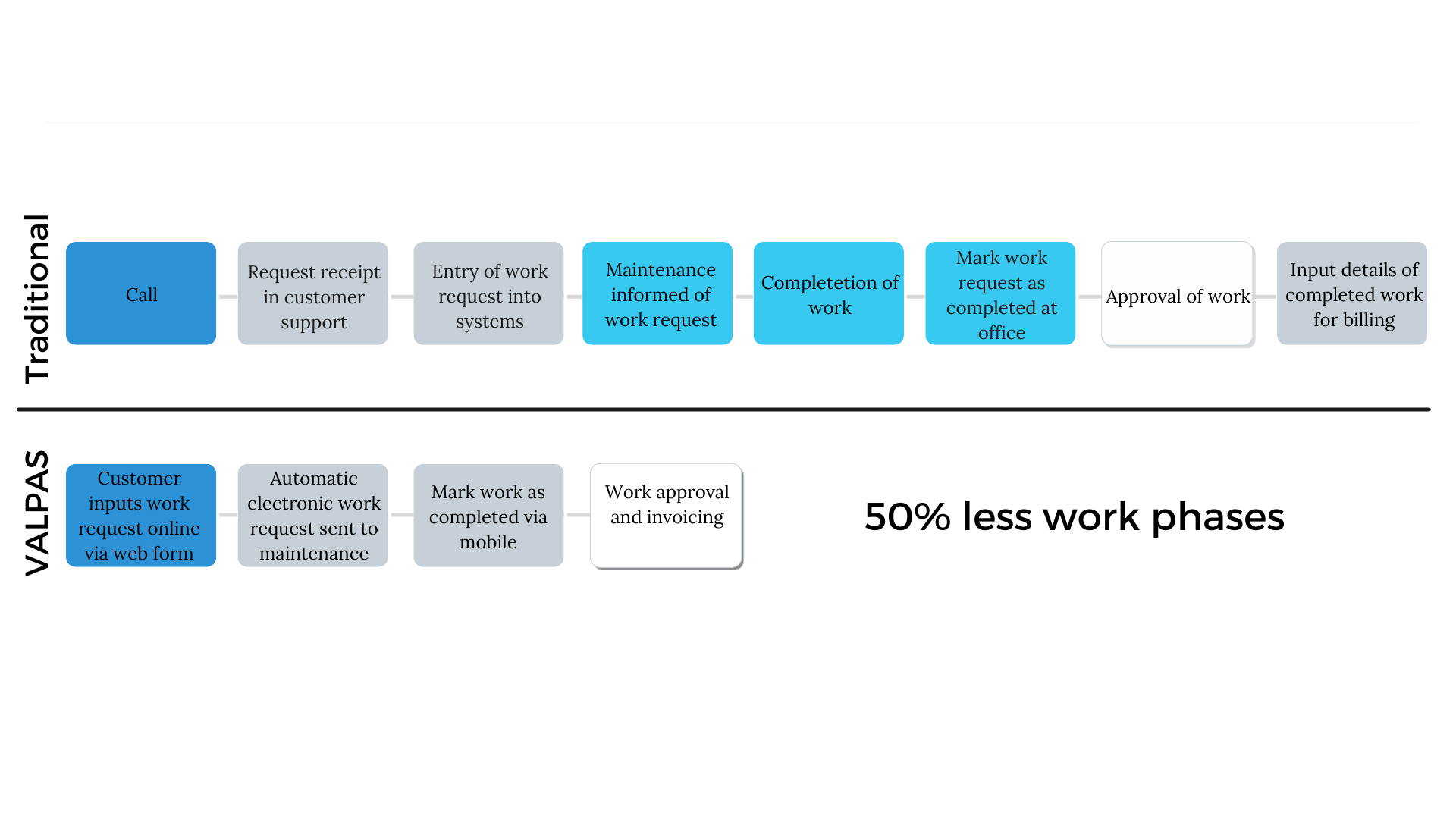Benefits of a Field Service Management System
Efficiently coordinating jobs is essential for any company working with a mobile workforce. A Field Service Management (FSM) System is a tool designed to streamline the management of service requests and field operations.
How Does a Field Service Management System Work?
At its core, a FSM system simplifies the scheduling, dispatching, and monitoring of tasks for field workers. It begins with the entry of a job request into the system, where management can then categorize and prioritize tasks based on their urgency and importance. Once assigned, field workers receive instant notifications on their mobile devices, equipped with all the essential details to tackle the job at hand—from locations and routes to specific instructions.
As tasks are completed, field workers can effortlessly update their progress and signal job completion directly through the system, allowing managers to track real-time status updates. A well-developed FSM system will also include many other useful features to make the overall day-to-day operations of maintenance company easier, faster and clearer.
The Benefits of a Field Service Management System
In the following sections, we’ll cover 6 key benefits of a Field Service Management System, illustrating how it allows organizations to optimize their mobile workforce and elevate their service delivery.
1. Automation of tasks
Managing maintenance jobs traditionally involves a lot of time consuming manual tasks such as processing and allocating service requests, recording work hours and invoicing. One of the clearest benefits of a Field Service Management software is that it reduces the time spent on these manual, repetitive tasks. It automates these tasks and ensures they flow smoothly – even when they’re happening outside the office. There are 50% less stages in processing a service request when the process is digitalized. Overall, it cuts wasted time and resources, and allows focusing on more important work and tasks.

2. Easier management of jobs
For management, the benefits of electronic workflow are undeniable. Supervisors can react to situations in real-time, ensuring time-critical repairs are scheduled promptly while also managing preventive maintenance effectively. For example, a map view and vehicle tracking make it easy to locate the nearest maintenance worker for an urgent job. The knowledge that time-critical and sudden repairs can be easily scheduled without delay, and not so time-critical work, such as preventive maintenance, can be rescheduled for another time, brings stability to the company’s day.
2. More detailed information and data in real-time
Having all the relevant information in one place makes work planning easier and more efficient. The visual modules of a FSM system help managers to see the big picture of the day, with a single glance at the number of work requests, completion rates and the day’s resources. Up-to-date resource views show the exact workload In general, data quality is also improved when data is recorded immediately on site, rather than afterwards in the office or at home outside working hours.
3. More efficient monitoring of working time
As a maintenance company’s activities take place at several different sites throughout the day, it is vital to know reliably how much time has been spent on each task. With a field service management system, every worker can accurately record the time spent on a task in real time. Up-to-date information on the time spent benefits all parties involved: the company, the employees and the customer, as invoicing and payroll are based on reliable and transparent data.
4. Reduced costs and improved profitability
Time is valuable and by optimising time use, wasted hours can be avoided, costs reduced and business profitability improved. It is also possible to monitor individual customer accounts using the data collected in the system and to see how profitable the different accounts are. This information will also help to price services correctly in the future. Electronic materials management will also ensure that all materials used are invoiced. Inventories are easier to manage when the information is available in the system and materials can be ordered more proactively.
5. Easier invoicing
With a work management system, invoicing information is virtually automatic, with up-to-date data. Work can be invoiced as soon as it is completed and invoices are based on accurate, real-time records. Manual invoicing errors are also avoided.
6. Added value for the customer
Electronic job control not only makes the service company’s operations more efficient, it also creates added value for the customer and keeps them engaged through improved transparency and customer service. For the customer, e-supervision enables shorter response times and up-to-date status messages on the progress of the work. Improved customer service is also a competitive advantage that can bring significant business benefits!
Are you interested in a Field Service Management System?
The Valpas Field Service Management system has been created through years of collaboration based on the needs of service companies of all sizes. Valpas is a real-time system for managing work requests and contract tasks in property and equipment maintenance. With Valpas work request processing, deadline management and field work management is flexible and transparent, from job receipt to invoicing.
Want to find out more about how a field service management system could support your business? Get in touch!

Did you enjoy this article? You might also enjoy our posts on:


